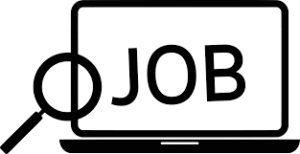First Job Strategies for Students in 2025
First Job Strategies for Students in 2025
The job market in 2025 is both exciting and challenging for new graduates. Rapid advances in AI and automation are reshaping industries, while remote and hybrid work have become common. Experts note that employers today hire not just based on what you know, but how quickly you learn and adapt. This means students entering the workforce need both up-to-date tech skills and strong people skills. In this dynamic market, planning ahead is key: new fields like data science, green energy, healthcare and cybersecurity are growing even as routine jobs change. To succeed, students should embrace continuous learning, cultivate flexibility, and be ready to stand out with initiative and creativity.
Building Your Network (Online and Offline)
Networking is crucial, even (especially!) for first-time job seekers. In today’s world, your network can include people in person and online. Start with people you know: classmates, professors, family friends or alumni working in fields you’re interested in. Don’t hesitate to reach out to them with a friendly message about your career goals. According to career advisors, many students already have potential contacts “they went to school with, have worked with, or have met socially” who could help. For example, send a quick note to an alumnus or a past internship supervisor saying you’d love to hear about their career path.
- Use LinkedIn and alumni networks: Connect with industry professionals, join student or professional groups, and participate in discussions. LinkedIn is often a first stop for recruiters, so an active profile can bring opportunities.
- Attend events: Go to virtual career fairs, club meetings, and workshops. Even informal events can lead to internships or referrals. One article notes that networking activities often lead to internships – and about 60% of interns end up with full-time offers.
- Ask for informational interviews: Reach out to someone in a role you admire and ask if they have 15 minutes to chat about their job. This shows initiative and can give insider tips.
- Build genuine relationships: Don’t just ask for jobs. Seek advice or mentorship. Over time, your network can become a support system for industry news, skill recommendations, and job leads.
Gaining Experience through Internships and Projects
Hands-on experience is gold for a first-time job seeker. Internships give you real work to put on your resume and often open doors to full-time roles. Indeed, one survey found that most internships lead to job offers with the same employer. Apply early and broadly for internships (check school job boards, LinkedIn, company sites) because competition is fierce. If you see unpaid internships that offer solid training, consider them – just balance them with paid work or scholarships.
If traditional internships are hard to land, look for creative alternatives:
- Micro-internships and short projects: Platforms like Parker Dewey connect students with real-company tasks (data analysis, writing, research). These short gigs let you build experience on your schedule.
- Volunteer or freelance: Help a nonprofit with its social media, or freelance small projects (like tutoring or graphic design) that relate to your field. These experiences show initiative and build skills you can mention.
- University projects and labs: Treat class projects as mini-work experiences. Led a team project or a lab experiment? Describe it as you would a job: your role, what tools you used, and the outcome.
- Certifications and courses: Some fields value industry certificates (e.g. Google Career Certificates in IT or data). Taking an online course and listing the certificate shows you’re proactive.
By doing anything work-related, you’re building your resume and learning workplace skills. The effort pays off: hiring trends now favor applicants who demonstrate practical skills, not just academics.
Developing Key Soft Skills
Technical know-how is important, but soft skills often make the difference between two equal candidates. Employers in 2025 continue to emphasize human-centered skills. Communication tops the list – you’ll need to write clear emails, lead video calls, and even explain technical ideas in simple terms. Practice speaking up in class discussions or group chats, and write summaries of your projects to hone clarity.
Adaptability is another must-have. Modern work moves fast, so being able to learn new tools or switch projects quickly is valued. Show this by telling stories of times you embraced change (maybe learning a new software or taking on a surprise project). Employers also love creativity – finding fresh ways to solve problems. Brainstorm without judgment and volunteer to lead or improve small projects; this flexibility and initiative will make you stand out.
Here are some top soft skills to cultivate:
- Communication: Polish both your writing and speaking. Clear, engaging messages and confident presentations (even over video) signal professionalism.
- Teamwork and empathy: Working well with others and showing you care about their viewpoints is vital for any role.
Developing these soft skills can be as simple as joining a student club, volunteering for a leadership position, or taking an online course on communication or project management. They complement your technical abilities and show that you’re ready for a real workplace.
Embracing AI in the Job Hunt
Artificial intelligence is deeply woven into today’s hiring process – and into the tools you can use. On the recruiter side, AI-powered ATS and matching algorithms parse thousands of resumes in moments. As one expert advises, don’t fear AI; instead, optimize for it. Use clear language and keywords so that automated scanners (and real people) see you as a strong match. For example, include the exact job title from the posting in your resume and summary. Many platforms also let you upload a resume to get instant feedback on keywords and skills, which can be a great practice.
At the same time, AI can level the playing field. Some companies use AI-driven video interviews or chatbot screening. While this might sound intimidating, it often just means you’ll be assessed on your communication style and problem-solving under consistent criteria. To prepare, practice speaking clearly and staying engaged on camera. You can even rehearse with AI tools (there are apps that simulate interview questions) to build confidence.
On the job-seeker side, use AI to your advantage. Simple tools like AI writing assistants can help draft or proofread your cover letters, or generate questions to ask in interviews (then customize them). Just double-check any automated output – you want your voice to come through. LinkedIn and job platforms also increasingly use AI to suggest roles based on your profile, so keep your online presence polished.
Thriving in Remote and Hybrid Work
Many first jobs in 2025 will offer some blend of office and home work – or be fully remote. To succeed, develop habits and skills for a virtual workplace.
- Set up your workspace: If possible, carve out a quiet spot at home for work. Make sure your equipment (laptop, internet, webcam) works smoothly before day one. A good setup (lighting, tidy background) not only boosts productivity but looks professional on video calls.
- Keep a routine: Treat remote work like normal work. Maintain your regular start and end times. Each morning, jot down daily goals and share updates with your manager or team. Check things off as you go. Experts say it helps to “set daily goals, track them and share your progress” to stay on task.
- Manage distractions: If you’re home, discuss schedules with family or roommates so they know when not to interrupt. Take regular short breaks to stay fresh.
- Communicate proactively: In a virtual office, it’s easy for messages to be missed. Be extra clear in emails and chats. If you’re unsure about something, ask questions rather than waiting. Baylor University advises that managers may expect more updates from remote workers; be prepared to report progress more often than you would in person.
- Stay connected: Remote work can feel lonely. Make the effort to bond with colleagues – join informal video hangouts, contribute to team chats, or suggest a quick coffee break on Zoom. Know that feeling “left out” of watercooler talk is normal, so plan virtual meetups or check-ins to build relationships.
By being organized, communicative, and responsible in a remote/hybrid setting, you’ll meet employer expectations and stand out as a reliable team member.
Conclusion: Take Action and Thrive
The world of work in 2025 is changing, but that’s good news for students who prepare. Think of these changes as opportunities: more online tools mean you can apply globally or learn new skills on your own schedule. With a strong resume, a growing network, and the right skills, you’ll be ready to seize those opportunities. Start small: update your LinkedIn today, reach out to a mentor, or enroll in a short course. Every step builds momentum.
Remember, employers are looking for candidates who can adapt, learn, and contribute. By showcasing your initiative and soft skills, you’ll make a strong impression. As one career guide puts it, by embracing changes in the job market and proactively building your skills, “
Good luck on your job search – the 2025 market has challenges, but also many doors open for prepared, motivated students. Go out there, stand out, and kick off your career with confidence!
Sources: Authoritative labor reports and career experts.






